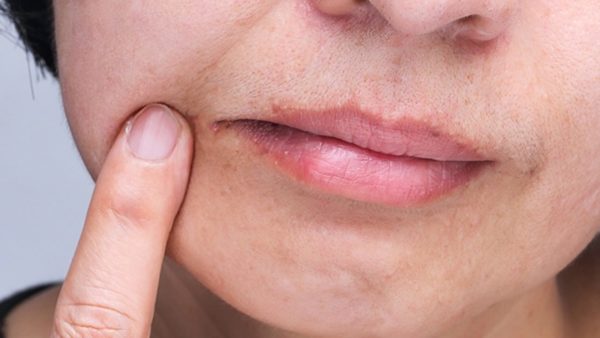Wellhealthorganic.com:which-is-better-hot-water-or-cold-water-bath
Both hot water and cold water baths have their own benefits and drawbacks, and the choice between them depends on the purpose and the condition of the person taking the bath.
Hot water baths are beneficial for relaxing muscles, increasing blood circulation, and reducing stress. They can also help relieve pain and stiffness in the joints, and promote better sleep. However, hot water baths can also cause dehydration and dryness of the skin, especially if taken for a prolonged period or with very hot water.
On the other hand, cold water baths are beneficial for reducing inflammation and swelling and can help relieve sore muscles and joints after intense physical activity. They can also improve circulation and boost the immune system. However, cold water baths can be uncomfortable for some people, and may not be suitable for those with certain medical conditions, such as cardiovascular problems.
In general, it is recommended to use a combination of hot and cold water baths to achieve the desired therapeutic effects. Alternating between hot and cold water can provide a greater range of benefits than either one alone. It is also important to consult a healthcare professional before using hot or cold water baths for any specific condition.
10 Benefits of hot water or cold water bath
Here are 5 benefits of hot water baths and 5 benefits of cold water baths:
Benefits of Hot Water Baths:
- Relaxes muscles:
Hot water helps to relax muscles by increasing blood circulation, which can relieve muscle tension and stiffness.
Yes, hot water baths are known to relax muscles by increasing blood circulation and reducing tension and stiffness. The heat from the water can help to soothe sore muscles and relieve pain. This is why hot water baths are often recommended for people who suffer from muscle pain, arthritis, or other conditions that cause muscle tension. Additionally, the relaxation that hot water baths provide can also help to reduce stress and promote better sleep. However, it is important to use caution when taking hot water baths, as excessively hot water or prolonged exposure to hot water can cause dehydration, dizziness, or other negative side effects. It is always a good idea to consult a healthcare professional before using hot water baths for any specific condition.
- Promotes sleep:
Taking a hot water bath before bedtime can help promote relaxation and improve the quality of sleep.
Yes, hot water baths are known to promote better sleep. Taking a hot water bath before bedtime can help to relax the body and mind, reducing stress and tension that can interfere with sleep. The warm water can also increase blood circulation, which can help to release muscle tension and promote relaxation. Furthermore, the drop in body temperature that occurs after a hot water bath can also help to induce sleep, as the body naturally cools down in preparation for sleep. However, it is important to avoid taking hot water baths too close to bedtime, as the heat can actually make it harder to fall asleep if the body is still too warm. It is recommended to take a hot water bath at least 1-2 hours before bedtime to promote better sleep.
- Reduces stress
Hot water baths have been shown to reduce stress and anxiety by promoting the release of endorphins, which are natural mood-boosting chemicals in the body.
Yes, hot water baths are known to reduce stress. The warm water and relaxation that come with taking a hot water bath can help to calm the mind and reduce tension in the body, which can help to lower stress levels. Additionally, the heat from the water can stimulate the release of endorphins, which are natural mood-boosting chemicals in the body that can help to reduce feelings of stress and anxiety. Taking a hot water bath regularly can be a helpful stress management tool for people who are prone to stress or anxiety. However, it is important to be cautious when taking hot water baths, as excessively hot water or prolonged exposure to hot water can cause dehydration, dizziness, or other negative side effects. It is always a good idea to consult a healthcare professional before using hot water baths for any specific condition.
- Relieves pain:
Hot water can provide temporary relief from pain by stimulating the release of natural pain-relieving hormones, such as endorphins and oxytocin.
Yes, hot water baths are known to provide temporary relief from pain. The heat from the water can stimulate the release of natural pain-relieving hormones, such as endorphins and oxytocin, which can help to reduce pain and promote relaxation. Hot water baths can be particularly beneficial for conditions that cause muscle pain, joint pain, or stiffness, such as arthritis or fibromyalgia. However, it is important to use caution when taking hot water baths, as excessively hot water or prolonged exposure to hot water can cause dehydration, dizziness, or other negative side effects. It is always a good idea to consult a healthcare professional before using hot water baths for any specific condition. Additionally, hot water baths may not be appropriate for certain types of pain, such as acute injuries or inflammation, and may even exacerbate these conditions.
- Opens pores:
Hot water can open up the pores of the skin, which can help to release toxins and impurities from the body and improve skin health.
Yes, hot water can help to open up the pores of the skin, which can be beneficial for skin health. The heat from the water can cause the blood vessels near the surface of the skin to dilate, which can increase blood flow and open up the pores. This can help to release toxins and impurities from the body, which can improve skin health and appearance. Additionally, opening up the pores can make it easier for topical treatments, such as moisturizers or masks, to penetrate the skin and be more effective. However, it is important to be cautious when using hot water to open up the pores, as excessively hot water or prolonged exposure to hot water can cause dehydration, dryness, or other negative side effects on the skin. It is recommended to use warm water rather than hot water when cleansing the face or body to avoid damaging the skin.
Benefits of Cold Water Baths:
- Reduces inflammation:
Cold water baths can help to reduce inflammation and swelling in the body, which can be beneficial for conditions such as arthritis or muscle strains.
Hot water baths can be beneficial in reducing inflammation, particularly in joints and muscles. The heat from the water can help to increase blood circulation and oxygen flow to the affected area, which can help to reduce inflammation and promote healing. Additionally, the warmth can also help to relax muscles and reduce stiffness, which can also contribute to reducing inflammation. However, it is important to be cautious when using hot water to reduce inflammation, as excessively hot water or prolonged exposure to hot water can cause skin irritation or burns, and may actually worsen inflammation in some cases. It is always a good idea to consult a healthcare professional before using hot water baths for any specific condition, particularly if inflammation is a concern. Other treatments, such as ice or anti-inflammatory medications, may be more appropriate depending on the individual situation.
- Boosts immune system:
Cold water baths have been shown to stimulate the immune system, which can help to fight off infections and diseases.
While hot water baths may provide some benefits for overall health and well-being, there is no clear evidence to suggest that they can boost the immune system directly. The immune system is a complex network of cells, tissues, and organs that work together to protect the body against infection and disease. While factors such as diet, exercise, and stress management can all play a role in supporting a healthy immune system, there is no single treatment or therapy that can boost the immune system on its own.
However, hot water baths can be a relaxing and stress-reducing activity, which can indirectly contribute to overall health and well-being. Stress and anxiety can weaken the immune system, so reducing stress levels through relaxation techniques such as hot water baths may help to support immune function indirectly. Additionally, hot water baths may help to improve sleep quality, which is important for overall health and immune function. It is important to maintain a healthy lifestyle and consult a healthcare professional for any specific concerns related to immune health.
- Increases alertness:
Cold water can help to increase alertness and mental clarity by stimulating the release of adrenaline and other hormones.
Cold water baths or showers are known to increase alertness and wakefulness, while hot water baths can have a relaxing and calming effect that may actually reduce alertness in some people. The shock of the cold water can cause the body to release adrenaline and other stimulating hormones, which can increase heart rate and respiration and help to improve mental alertness and focus. Additionally, exposure to cold water may stimulate the production of norepinephrine, a neurotransmitter that is involved in attention and focus. However, it is important to be cautious when using cold water for bathing or showering, as excessively cold water can cause shock or hypothermia in some individuals. It is recommended to start with lukewarm water and gradually decrease the temperature to avoid any negative side effects.
- Improves circulation:
Cold water can improve blood circulation, which can help to deliver oxygen and nutrients to the body’s tissues and organs.
Yes, both hot and cold water can improve circulation in different ways.
Hot water can help to improve circulation by causing the blood vessels to dilate, which allows for increased blood flow to the extremities and throughout the body. This increased blood flow can help to deliver oxygen and nutrients to the cells, while also helping to remove waste products and toxins. Improved circulation can also help to promote healing and reduce inflammation in muscles and joints.
Cold water, on the other hand, can help to improve circulation by causing the blood vessels to constrict. This constriction helps to reduce inflammation and swelling in the extremities, while also increasing blood flow to the organs and tissues that need it most. The cold water can also help to stimulate the nervous system and increase heart rate, which can further improve circulation and overall cardiovascular health.
However, it is important to be cautious when using hot or cold water to improve circulation, as excessively hot or cold water can cause burns, hypothermia, or other negative side effects. It is recommended to start with lukewarm water and gradually increase or decrease the temperature as needed and to always consult a healthcare professional before using hot or cold water baths for any specific condition.
- Relieves sore muscles:
Cold water can provide relief for sore muscles after exercise or physical activity by reducing inflammation and promoting healing.
Yes, both hot and cold water baths can be effective in relieving sore muscles.
Hot water baths can help to relax and soothe sore muscles by increasing blood flow and oxygenation to the affected area. The heat from the water can also help to reduce muscle spasms and stiffness, which can contribute to soreness. Additionally, warm water can help to stimulate the release of endorphins, which are natural pain relievers that can help to alleviate discomfort and promote relaxation.
Cold water baths can also be effective in relieving sore muscles by reducing inflammation and swelling in the affected area. Cold water can help to constrict blood vessels and limit the flow of blood to the area, which can help to reduce inflammation and pain. Additionally, the shock of the cold water can help to numb the area and provide temporary relief from soreness.
Also Read: Wellhealthorganic.com:vitamin-e-health-benefits-and-nutritional-sources
However, it is important to be cautious when using hot or cold water to relieve sore muscles, as excessively hot or cold water can cause burns or other negative side effects. It is recommended to start with lukewarm water and gradually increase or decrease the temperature as needed and to always consult a healthcare professional before using hot or cold water baths for any specific condition.
It is important to note that both hot and cold water baths should be used with caution and in moderation, as they can have potential risks and side effects for certain individuals. It is always a good idea to consult a healthcare professional before using hot or cold water baths for any specific condition.
Frequently Asked Questions
Here are some frequently asked questions about hot and cold water baths:
Q. Is it better to take a hot or cold water bath for sore muscles?
A. Both hot and cold water baths can be effective in relieving sore muscles, depending on the cause of the soreness. Hot water baths can help to relax and soothe sore muscles, while cold water baths can help to reduce inflammation and swelling.
Q. Can hot water baths help with sleep?
A. Yes, hot water baths can be helpful in promoting sleep by relaxing the body and reducing stress and anxiety.
Q. Can cold water baths help with weight loss?
A. There is some evidence to suggest that cold water exposure may increase metabolism and help to burn more calories, which could potentially contribute to weight loss. However, more research is needed to fully understand the effects of cold water on weight loss.
Q. Is it safe to take hot water baths during pregnancy?
A. It is generally safe to take hot water baths during pregnancy, but it is important to avoid water that is too hot, as excessive heat can be harmful to the developing fetus. It is recommended to keep the water temperature below 100°F (37.8°C) and to avoid prolonged exposure to hot water.
Q. Can cold water baths boost the immune system?
A. There is no clear evidence to suggest that cold water baths can boost the immune system directly. However, cold water exposure may help to reduce stress and improve sleep quality, which can indirectly support immune function.
Also Read: wellhealthorganic.com:5 amazing health benefits of guava








